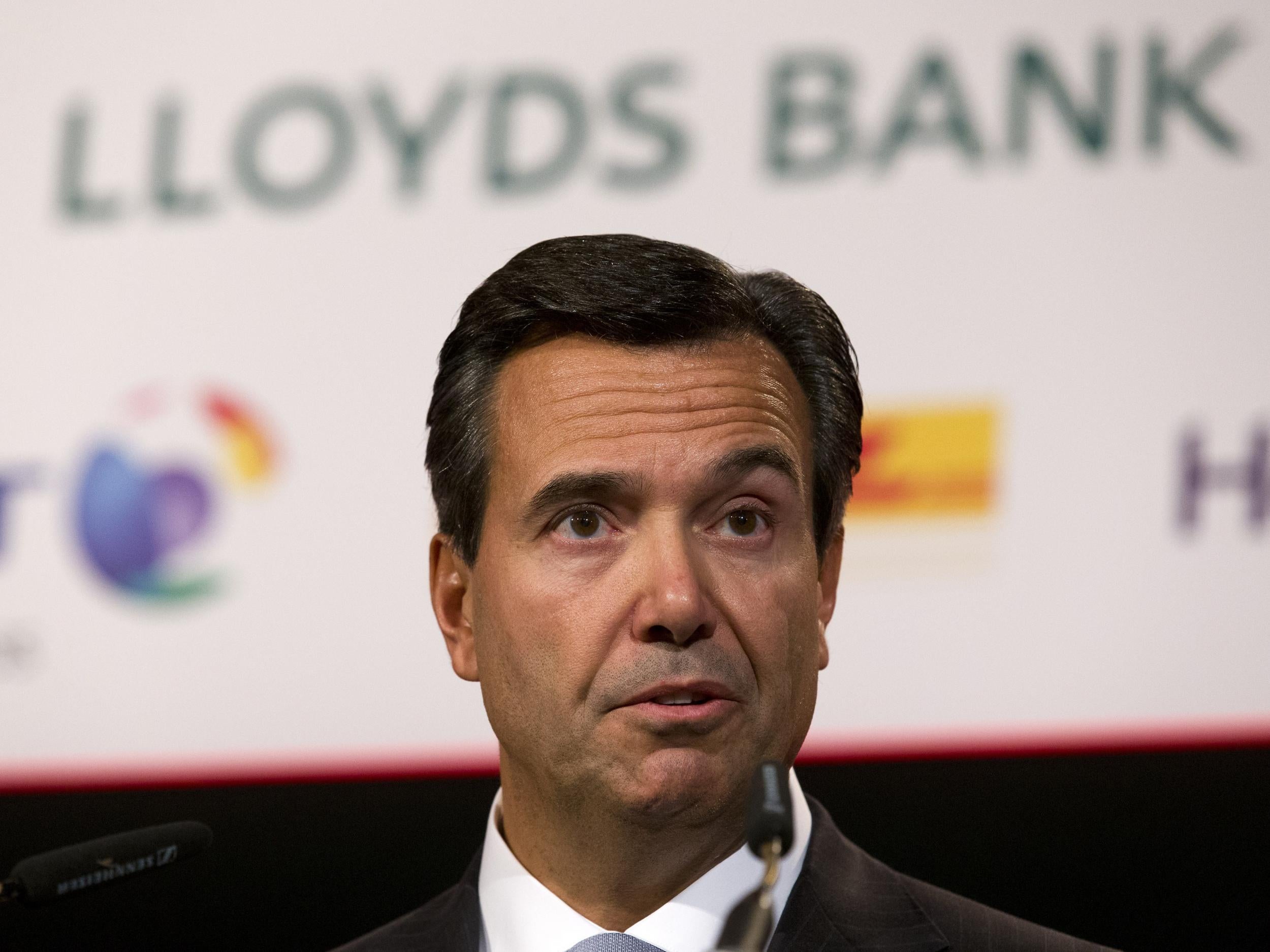Lloyds Bank is looking like a star again after 16-year nightmare
The bank has produced its best results in a decade. They’ll be better still if it can keep its nose clean and avoid City pressure to take more risks

Your support helps us to tell the story
From reproductive rights to climate change to Big Tech, The Independent is on the ground when the story is developing. Whether it's investigating the financials of Elon Musk's pro-Trump PAC or producing our latest documentary, 'The A Word', which shines a light on the American women fighting for reproductive rights, we know how important it is to parse out the facts from the messaging.
At such a critical moment in US history, we need reporters on the ground. Your donation allows us to keep sending journalists to speak to both sides of the story.
The Independent is trusted by Americans across the entire political spectrum. And unlike many other quality news outlets, we choose not to lock Americans out of our reporting and analysis with paywalls. We believe quality journalism should be available to everyone, paid for by those who can afford it.
Your support makes all the difference.Lloyds' black horse is back, a fighting favourite again, with an object lesson to the banking industry if only it would deign to take note.
The bank is the toast of the City after reporting its highest profits in a decade, some £4.2bn in 2016 before tax, more than double the £1.6bn it turned in in 2015.
Capital strength is up, the annual dividend is up, there’s another one-off special dividend to fatten shareholders’ wallets and the return on equity, a measure of profitability, is at a level more exciting, but riskier, banks like Barclays or HSBC can only dream of.
This in an environment that we are continually told is incredibly tough for banks to make money in, with ultra low interest rates squeezing margins. What’s going on?
Well, partly Lloyds pulled off the trick by cutting rates paid to savers, but that’s business, they can always switch.
However, the main reason for the dramatic improvement in the bank’s numbers is that it is starting to show the benefits of keeping its nose clean. Or cleaner. Misconduct charges in 2016 halved to £2.1bn.
Think about those numbers for a moment and just imagine how well Lloyds would be doing if it had managed avoid, or better limit, self-defeating bad behaviour like flogging worthless payment protection insurance products to boost profits.
Think about how this result was turned in despite the bank having (I hope) ceased imposing overly aggressive targets on salespeople that once upon a time led one poor rube to missell himself a life insurance policy he couldn’t afford, even with a max bonus, in a vain attempt to keep up. The heavy fine that led to a few years back is another one that found its way onto a huge misconduct pile.
The results led banking analyst Ian Gordon to opine that Lloyds is “only just emerging for a 16-year nightmare”. As he pointed out, before the turn of the century a retail banking focussed Lloyds traded on seven times the “book” value of its in force businesses. To put that in context, today’s banks are delighted with anything over one.
It’s necessary to sound a couple of notes of caution before chief executive Antonio Horta-Osorio is deafened by the City’s cheers ringing in his ears, and his remuneration committee starts thinking he needs some sort of special bonus for simply doing what he was hired to do.
Lloyds still has the bugbear of Brexit to deal with. The fortunes of this bank are very closely linked to those of the UK economy. If that suffers from the UK's EU exit, the bank will suffer.
Mr Horta-Osorio, or his successor, also need to avoid the traps walked into by people running Lloyds over the last 16 years, and stick to their guns.
The secret to Lloyds' future success is for it to carry on being boring and to resist any calls for it to become something else.
Its bosses need to remain deaf to the siren calls of the City demanding ever higher returns. Whether it's the latest whizzy product that the marketing men dream up (like PPI) or some deal being touted by investment bankers, Lloyds need to say no even if it starts to get outpaced by rivals.
The signs are good at the moment. The bank has not, for example, chosen to aggressively compete in the current mortgage price war. It's still lending, but it has kept its book of business conservative and low risk.
But its bosses have to keep it up, and show that they are willing to tell the City that Lloyds will not make anyone rich. It is here to offer steady, unspectacular growth, a nice dividend, a safe home for shareholders’ money. Its here to do what banks like Lloyds used to do and should do again.
Join our commenting forum
Join thought-provoking conversations, follow other Independent readers and see their replies
Comments